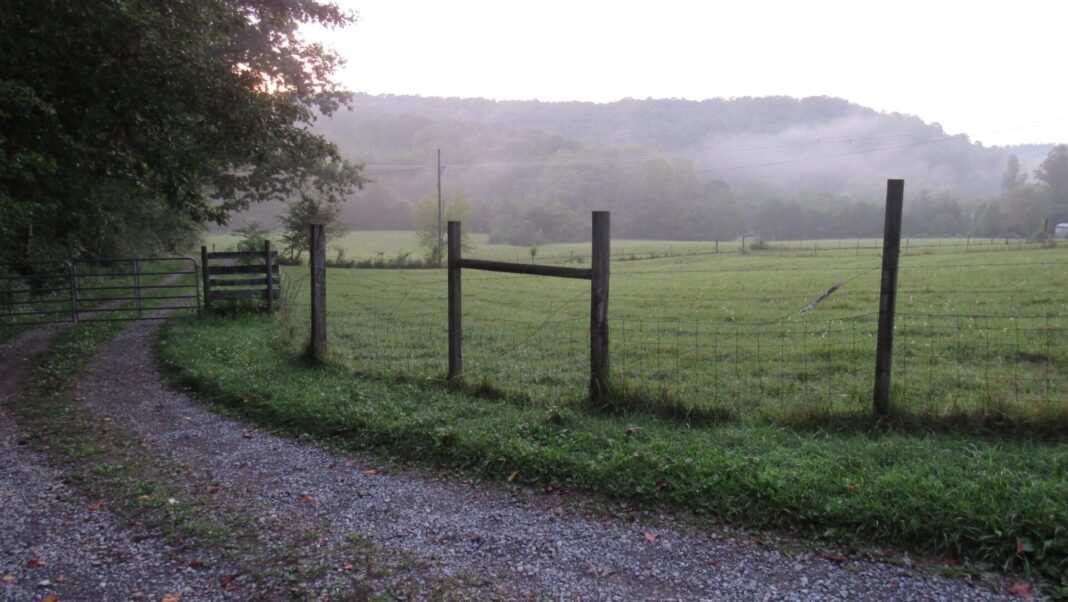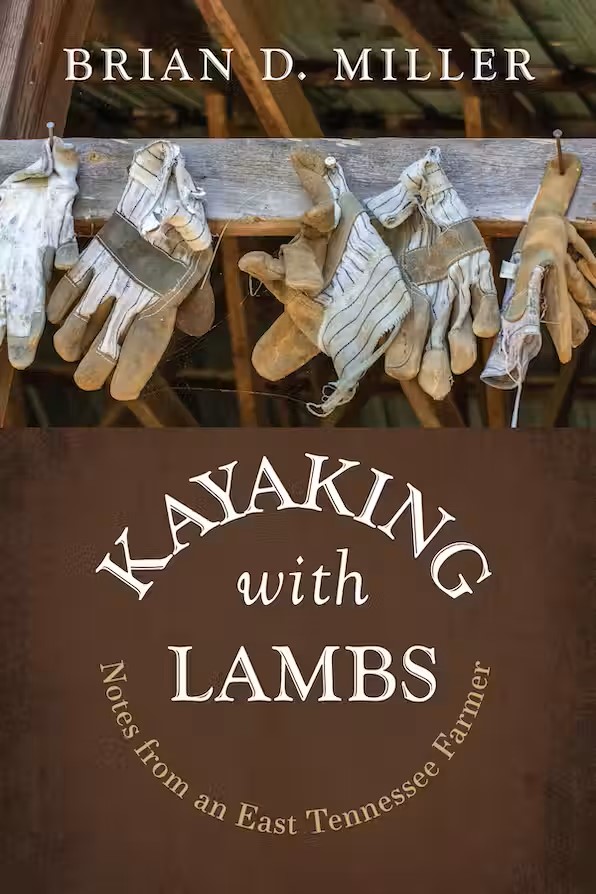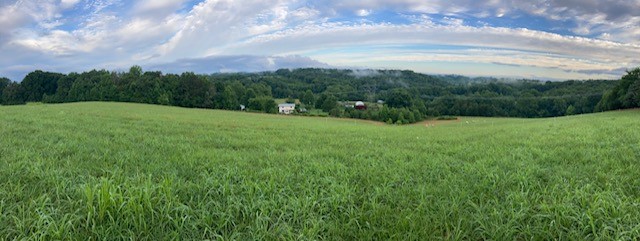The newest book from FPR Books is Brian Miller’s Kayaking with Lambs. Enjoy this excerpt, and then pick up a copy of the book.
This life is not what was expected when first I took up farming. Even today it is hard to conjure the farmer I envisioned two decades ago. No doubt he was tweed-clad, leaning on a walking stick as he surveyed a vast fat and sassy flock of sheep. And, in truth, I have been that man, played that role, an East Tennessee member of an imaginary minor gentry. But more often than not I have played the fool in service to the foolish. And so it was to be on this day I shall describe.
Lambing season brings a level of noise that is hard to convey and even harder to endure. A bucket gets rattled fifty yards away, and a mob of ewes begins bawling in hopes that the farmer has gotten the feeding time wrong. The lambs pick up the chorus. And when the lambs begin bawling, the ewes turn their attention from the din of the feed bucket and begin calling their babies, all at once, who all respond, all at once. The only sane way to handle the chaos, which restarts every half-hour, is to try desperately to shut it out.
All of which is to point out that it was hardly my fault that I ignored a bleating lamb for more than four hours. I was working in my study that morning, tuning out the periodic bleat-in-unison and along with it the small, plaintive call of a lamb. Using the skills of not listening I’ve honed over thirty-five-plus years of domestic bliss, I focused instead on the tasks at hand, all the while meaning at some point to check on the annoying background noise. At lunchtime I ran some errands before returning home and taking a short nap. The bleat continued, I noted, and I filed my good intentions away to the back of my brain.
The back of the brain is where we store hard-to-retrieve items like “Don’t forget to pick up some toilet paper in town” and “Wash that grease off your hands before using the yellow towels” and “I should probably be a good farmer and check on my livestock before doing anything else.” But, and I’m paraphrasing here, the road to hell passes through to the back of the brain.
Another half-hour went by before I awoke refreshed and listened to the unrelenting rain (six inches in twenty-four hours, to be precise) falling on the tin roof for a few minutes more . . . and, finally, recalled the lamb’s incessant bawl. That’s when I went downstairs and pulled on my rain slicker, my battered fedora, and my Wellingtons and sloshed out to the barnyard.
The flock peered out from the hay barn, where having knocked over the carefully erected fence panels they were busily making a mess of my neatly stacked hay bales.
Over the ever-present din I could hear one tiny voice coming from somewhere else. Sure enough, looking for yet another way to die, wedged halfway across the dam of the nearest pond and standing in water up to its belly was a lamb. Apparently it had taken a wrong turn in the hill pasture and got separated from the flock. Doing what all good little lambs do, it panicked, tried to take a shortcut to the barn, and got trapped between a thorny wild rose in front and briars behind, the steep wall of the dam above and the three-foot-deep water below. A woven wire fence across the dam prevented the simple solution of my reaching down and pulling it to safety. My attempt to wade into the pond ended when the water level reached the top of my Wellingtons mere feet from shore.
Slosh, slosh, slosh back to the hay barn I went, ignoring the greedy sheep who were ignoring their distressed comrade while stuffing their faces on precious hay. I took down one of the kayaks from where they hung barnside, grabbing the smallest because it was lighter and easier to haul back to the pond. Only when I had squeezed my six-foot-two frame onto the six-foot craft did I wish I’d chosen the larger.
Kayaks are nifty vessels. They are light and maneuverable, but they are also prone to tipping their contents into cold water. I kicked off from the bank and sat perched atop the boat, an overladen barge ready to offload its cargo at any second. A few strokes of the paddle brought me across the pond to within two arms’ lengths of the lamb—who about that time decided to move farther under the protection of the wild rose bush.
There I teetered on the narrow vessel. Above me in surround sound, on the bank and lining the dam, forty ewes and lambs had gathered. They watched intently my every move, voicing with enthusiastic bleats a wall of noise that would put to shame the lustiest cries at a gladiator game.
Sensing my moment I lunged, I missed, and the lamb squeezed even farther under the thorns of the rose bush and away from my grasping hands. The tipping and tilting kayak, meanwhile, had taken on a bucket’s worth of cold March water, which now sloshed around my ankles. For the moment, I decided against a shotgun option to end the standoff; that would have entailed a cowardly retreat to the mucky bank and then house, 400 yards and several gates away.
Instead, I made what in all honesty was to be my last heroic lunge through the brambles. This time, having endured an armful of undeserved scratches and voiced unspeakable oaths, I was just able to grab the damn sodden wee beastie by the leg and hoist it into the kayak.
The lamb bucked and twisted, but I clung to the woolly ingrate with one hand and paddled frantically with the other, the featherweight boat lurching this way and that. It was only with much mutual surprise that we finally made it across the pond and drifted onto the far bank.
The onlooking sheep had long since lost interest in the spectacle and returned to the hay barn. The lamb and I exited the kayak, and both of us stood and shook ourselves off. The wayward babe then ran, bawling, to find its mother, unscathed from the ordeal. The ewe’s maternal instinct suddenly kicked in, and she ran to greet her child, then the two rejoined the general mayhem in the barn. I left them to it as another carefully stacked round bale was being demolished . . . and once in the house went directly to the freezer and took out four lamb chops to thaw for dinner.














